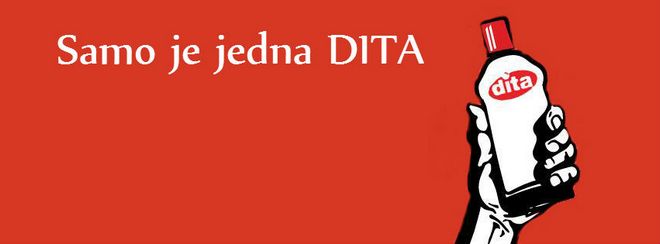Originally published at Open Democracy.
Privatisation processes in Bosnia and Herzegovina have gradually destroyed workers’ rights and ownership. But there are stories of hope and resistance emerging from this battered country.
Privatisation processes in Bosnia and Herzegovina from the 1990s onwards have gradually transferred ownership and power from the socialist state to private entrepreneurs. As elsewhere in Europe and the rest of the world, this process, in most cases, was accompanied by a large number of lay-offs. Company assets floated in the market and were bought and sold at unusually low prices, dismantling large factories and industrial giants of former Yugoslavia.
Financialisation/globalisation became embedded in Bosnia especially in the wake of the Dayton Accords. The workers, who were once deemed to be the owners of the enterprise, overnight became proletarians, deprived of fundamental rights and any form of possession over the production process. This was pretty much the case across the entire East-Central Europe, although the case of Yugoslav socialism was different, as the workers, through the self-management system, had had a much more direct control of the means and objects of their production units than anywhere else in the so-called countries of “really-existing socialism”.
Yugoslavia’s dissolution and transition to free market capitalism was also different in that it set in motion a bizarre process of primitive ethno-accumulation, i.e. primitive accumulation on the basis of ethnocratic-conflictual lines. Bosnia and Herzegovina is a typical example.
Among the many examples of the negative effects of privatisation processes in Bosnia and Herzegovina, one that was under the media spotlight in the past two years, is the case of “Dita” detergents factory from Tuzla, an industrial city in the central part of North-East Bosnia. The factory was privatised in two rounds (2001 and 2005) and become part of retail chain, “Lora”, from Sarajevo, who owned the majority of shares. The privatisation of “Dita” resulted in more than 20 million Euros in debt for the enterprise and over 20 wages being unpaid, affecting a four-year retirement plan, also due.

In the end, this led to the official bankruptcy of the enterprise. A series of workers’ strikes ensued in 2012, 2013 and 2014. The 2014 February protests started as joint protests of workers from several factories and enterprises in Tuzla (Dita, Konjuh, Aida) requesting the government of the Tuzla Canton to resolve the outstanding issues and waive the blame attributed to workers. The workers claimed that the cause of the crisis was and is the privatisation process and irresponsible management. These protests turned out to be the trigger for wider social protests in several cities in Bosnia and Herzegovina.
In early 2015, the Tuzla Canton government decided to revise the privatisation process of several enterprises, including “Dita”, starting an orderly bankruptcy procedure in view of enabling the creditors to get their money back while creating possibilities for re-launching and reviving production. The problem with the bankruptcy procedure (according to the existing legal framework) is that the workers are the last in the list of priorities: the “investors” and bureaucratic agencies will have to be paid first, and whatever is left over would go to the unpaid wages, pensions etc.
A sparkle of hope for the workers themselves is actually their own efforts for restarting production and trying to save what is possible to be saved in order to keep their jobs and eventually have their salaries paid. In June 2015, the Union of Workers of “Dita”, and the bankruptcy manager, reached an agreement to restart some of the production lines (since much of the production lines are in need of repairs for which there is no money available).
The plan is to start with production of some famous (in former Yugoslavia) products and support for this initiative is enlisted by civil society actors and people across the country (mainly expressed through support on Facebook and calls for support for purchasing “Dita” products). Some of the supermarket chains have already decided to support the efforts of “Dita” workers by buying their products and making them available on their stores’ shelves. However, this all is just a trial version of activities to be tested and any form of continuity has to be decided by the shareholders’ assembly to be held on 30 June 2015.
Will these efforts take root or quickly fade away? Does this mean that the spirit of the workers’ self-management is coming back in advanced and mature post-socialist colours, emblematically in Bosnia and Herzegovina, the most ethnically fragmented region of the former Yugoslavia in which primitive accumulation was criss-crossed with vicious ethnic war?
After years of their voices being unheard, struggles to keep the factory under collective ownership seem to bear some fruits. These struggles exposed corrupt governments and managers and brought to the fore the class issue as opposed to the ethnic and religious division which, if anything, divert attention from the real social issues.
Prior to 2014, there were numerous cases of workers’ rights violations that were only seen as a by-product of “transition“ and “post-war Bosnia and Herzegovina”, which were mostly related to ethnic, religious and political divisions. This is no longer the case after the protests of February 2014.
The narrative begins to change and the story of workers is becoming more and more important. Class cleavages supersede religious and ethnic ones and the ethno-capitalism of primitive accumulation and privatisation, of political clientelism and corruption have shown their limits. No one can explain the spirit of this mini-revolution better than the words of a “Dita” worker: “Industry is alive as long as there are workers ready to fight for their basic right – the right to work”.
